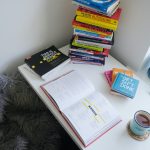If you’re like the millions of people the world over who sat in math class wondering why you’d ever need to know about algebra, you might be surprised to learn that conscious or not, are day to day lives are consumed with algebraic formulae and equations.
From morning routines to scoring goals in soccer, we’ve provided 4 ways in which you’ve used algebra in your daily routines without even realizing it. Let’s have a look!
Shopping for Groceries

Picture the scene, its Saturday afternoon and you’re at the local grocery store doing your weekly shop, you’ve got your list of items you want to buy, and you have the number in your head of what you expect to spend.
You go to buy a product (let’s say breakfast cereal) and you find that there’s a weekly special, buy 2 for the price of 3! Now you need to figure out how this deal effects your budgeting. You intended to buy one box, but the value has changed. You need to figure out if spending the extra to gain more cereal will still allow you to complete your shopping list.
Have I got enough money to cover the items in my cart? If this costs X amount and I buy 2 how much money will be left to buy Y?
It’s a process that takes a mere few seconds to process in your head but it’s algebra never the less. There exists a formula that can be written down to help explain your thinking.
Planning Your Daily Commute

Again, imagine the scenario, you wake up in the morning to the sound of your alarm, you get ready for work and realize you’re craving a nice warm bagel to start your day. You could make one at home but you like the freshly made ones from the store. Do you have time pick one up? Is it more time/cost effective to prepare one from home? How will potential traffic effect your decision? If its gridlocked on the highway, would the backroads be faster?
Much like the grocery store scenario, we have values in our head and using the variables in play, we’re able to determine the best course of action. Whether it’s the time it takes to successfully complete a morning coffee run or the plans we make for a faster commute, algebra has helped us navigate these early morning decisions whether you’ve realized it or not.
Preparing Dinner

So many elements in the process of cooking dinner rely on some form of algebra. The mixture of time with proportions and values will all need to be considered when making a meal and to make it successfully. Put simply, algebra is used to assed what temperature the oven should be at and for how long the food should cook, mental algebra is everywhere!
Playing Sports/Video Games

Lastly, when you play a game like soccer or hockey, how do you know just how much power to put into a pass for it to meet its intended target? How do you know at which angle to strike the ball/puck and what force is required to successfully beat the keeper and score?
The answer requires you to quickly process the force required, to account for air resistance, and to project the trajectory of the ball upon contact. We don’t stop to pull a pen out and draw the formula to solve this, we simply do it and learn it through trial and error (training). We process this information overtime through repetition and build mental formulae in our minds to solve problems in the moment. Essentially, we understand what is needed to achieve our desired goal. For example, when you’re one on one with the keeper who is positioned to the left, you’ll have an idea of how to hit the ball with X amount of power at a specific angle to achieve Y.
The same can be said of video games too. Whether it’s a light tap on the jump button, feathered acceleration around a corner in a racing game, or shooting an enemy, algebra plays a pivotal role in our understanding of the game and what is required to be successful.
In summary:
These are just a few examples of everyday actions that use algebra and there are many more that I’m sure you could think of too. I would argue that the time spent in class finding the value of X has better prepared us to use our minds to solve everyday issues regardless of what ‘X’ is.
If you’re currently studying algebra or algebra 2 in class, don’t curse! You’re developing your ability to problem solve and it’s a skill that will greatly benefit you later in life. It can be a daunting topic to cover but once you have a firm understanding of the basic principles, it can be a rewarding challenge to tackle complex equations.
If you’re struggling to get your head around algebra and need some help, companies like StudyPug have developed a range of excellent resources surrounding the subject and offer free tutorials alongside a subscription service that provides additional lessons and relevant exam prep materials. Their content covers everything you see in your textbooks and will explain everything that you’ve been taught in the classroom. Give them a visit today and see how they can help you succeed.











